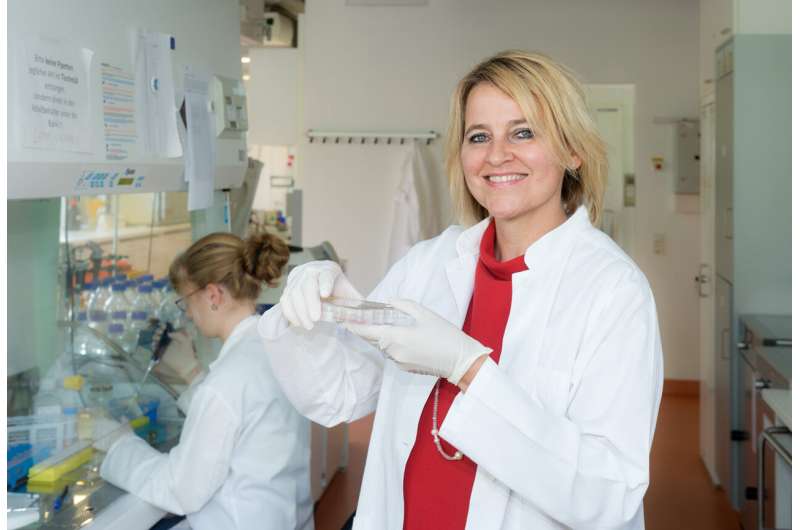
Significant changes in lipid metabolism are known to occur in cells associated with non-small-cell lung carcinoma—the most common form of lung cancer. The pharmaceutical scientists Alexandra K. Kiemer and Jessica Hoppstädter from Saarland University have discovered that the lipid and cholesterol metabolism of immune cells that collaborate with the tumor is severely compromised—in contrast to what is observed in the tumor tissue itself. The cell culture model they developed has allowed them to examine parameters that correlate with tumor growth. The goal now is to find new therapeutic approaches. The research team has published its findings in the journal EBioMedicine.
Lung cancer is the cancer with the highest global mortality rate. This is due in part to the fact that we still do not know what exactly happens in the body when a lung carcinoma forms. Highly complex processes and reaction chains occur within the cells, with some of these processes appearing to interact in a conflicting manner. This makes the search for novel therapeutic approaches difficult. New findings from the research group led by Alexandra K. Kiemer, Professor of Pharmaceutical Biology at Saarland University, are helping to shed light on the complexity of some of these processes.
It has been known for some time that in non-small-cell lung carcinoma, which is the most common form of lung cancer, the tumor cells exhibit lipid and cholesterol levels far higher than those in the cells of healthy tissue. Kiemer’s team is the first to have demonstrated that the immune system macrophages that work with the tumor—hence the name ‘tumor-associated macrophages’ – contain significantly less cholesterol than macrophages found in healthy tissue. “The low amounts of cholesterol in the tumor-associated macrophages was a surprise, given the higher cholesterol levels that we find in the tumor tissue itself,” explains the paper’s lead author Dr. Jessica Hoppstädter. She discovered that the genes that influence cholesterol metabolism in these macrophages are programmed differently: “The genes that regulate cholesterol uptake and the production of cholesterol in the cells are downregulated, while those that ensure that cholesterol is exported out of the macrophages are upregulated,” says Hoppstädter.
These new findings by the pharmaceutical research team corroborate what other studies have previously indicated, namely that cholesterol-lowering drugs appear not be an effective therapy against non-small-cell lung carcinoma. “Although the lung tumor cells grow more slowly in the laboratory when treated with cholesterol-lowering drugs, this type of medication does not seem to have a particularly positive impact on the development of the disease in controlled clinical studies,” says Professor Kiemer.
The latest results offer a possible explanation for these observations. The low level of cholesterol in the macrophages appears to contribute to lung tumor growth. “Our results suggest that the tumor-supporting properties of the macrophages are connected to the presence of cholesterol. Cholesterol appears to be playing a critical role in the underlying regulation processes,” explains Jessica Hoppstädter.
Macrophages are key defense cells within the innate immune system that each of us is born with. Normally these cells work to protect the body and to keep it healthy. Macrophages (whose name in Greek means ‘big eaters’) engulf and destroy pathogens like bacteria or cancer cells. But some tumor cells succeed in making macrophages obey them. By reprogramming the macrophages, the tumor cells are able to make the macrophages work for them rather than against them. “The macrophages essentially defect to the other side and begin supporting the growth of the tumor,” says Hoppstädter. The reprogrammed macrophages support, for example, the formation of blood vessels, thus improving the supply of nutrients and blood to the tumor cells.
The work of the Saarbrücken researchers is helping to increase understanding of how this reprogramming occurs. They compared the processes in macrophages with a normal cholesterol metabolism with those in macrophages with an altered cholesterol metabolism. “If the cholesterol levels in tumor-associated macrophages are normalized by preventing the efflux of cholesterol, these macrophages will stop those activities, such as revascularization, that were supporting tumor growth,” says Dr. Hoppstädter.
Source: Read Full Article